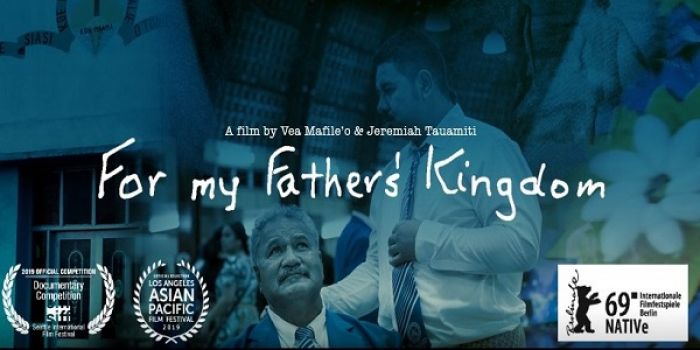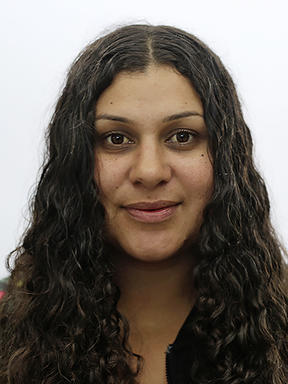For My Father's Kingdom explores faith, love and fatherhood in Tongan community Featured

8 August, 2019. A film centred on faith, love and fatherhood in a Tongan family is screening at this year's New Zealand International Film Festival.
Saia Mafele'o during one of his visits to Tonga. Photo: Facebook
For My Father's Kingdom is directed by Pacific film-makers Vea Mafile'o of Tonga and Samoa's Jeremiah Tauamiti.
The documentary centres on Vea's father, Saia Mafile'o, and his four children.
Film reviewer Chris Schulz told Kathryn Ryan on Nine to Noon people were in tears at the screening in Auckland.
"All great documentaries shine a light on something that you don't know anything about. Right?
"So, this is about tithing in the Tongan church. I knew nothing about this.
"When I walked in, I walked in absolutely cold. And it really affected me.
"It's full of stuff that kind of gets to you. It gets really emotional. It's quite a raw documentary."
Mr Schulz said while For My Father's Kingdom is heartfelt and emotional, it is also very funny.
Driven by his deep faith in God and Tongan culture, pensioner Saia Mafile'o navigates not only the rough streets of South Auckland, but also his sometimes-fraught relationship with his children who struggle to accept their father's commitment to a kingdom that tore their family apart.

Vea Mafile'o is the director of For My Father's Kingdom
Saia Mafile'o surrenders all his income to the Wesleyan Church of Tonga's Misinale - the fundraising campaign that calls on people in and from Tonga to raise money for the community.
Saia Mafile'o lives in New Zealand but adheres to this tradition.
This becomes difficult for his children to understand because their father's tithing means the family is short of money for other things.
But a journey to the homeland helps them understand the Tongan way of life.
The children also accept that attitudes in New Zealand are not always compatible with Western notions of efficiency.
The film explores how the church, the Tongan culture and traditions can hold a family together, but it can also be a burden.
For My Father's Kingdom has just completed screenings in Auckland and is showing in Wellington this week before moving on to regional New Zealand.
- RNZI
1 comment
-

Malo fau and many thanks rightfully yet forthrightly go to both amazing Vea Mafile'o and Jeremiah Tauamiti as up-and-coming film-makers of great abundance, brilliance and excellence. This newly-released film "For My Father's Kingdom" is not only a great work of art (and literature) in film-making (tufunga hele'uhila) but also in script-writing (tufunga tohi[talanoa]), storytelling (faiva talanoa) and acting (faiva 'eti/faiva hele'uhila) -- all as a multiplicity of intersecting or connecting and separating material (tufunga) and performance (faiva) arts -- which actively albeit critically engages in the production of images ('ata/kupesi) through sustained symmetry (tatau) and harmony (potupotutatau) to produce beauty (faka'ofo'ofa/malie) -- thereby transforming them from a condition of chaos (felekeu/fepaki) to a situation of order (maau/fenapasi) by means of the medium light (maama), in either black ('uli) and white (hina/tea) or colours (lanu). Their effective equal-to-the-task handling of both the Tongan age-old performance arts tragedy (faiva fakamamahi) and comedy (faiva fakaoli) as intersecting or connecting and separating psychological-emotional, social-cultural tendencies in the overall production of the film is highly and earnestly yet deservedly and befittingly congratulated and praised for their reflective sense of both creativity and originality. May I join the ranks by humbly saying from the height of my mind and depth of my heart, "Malo lahi 'ae ngaue lelei, malohi, mo'oni mo faimateaki and 'Ofa atu fau moe manatu ma'u!"



